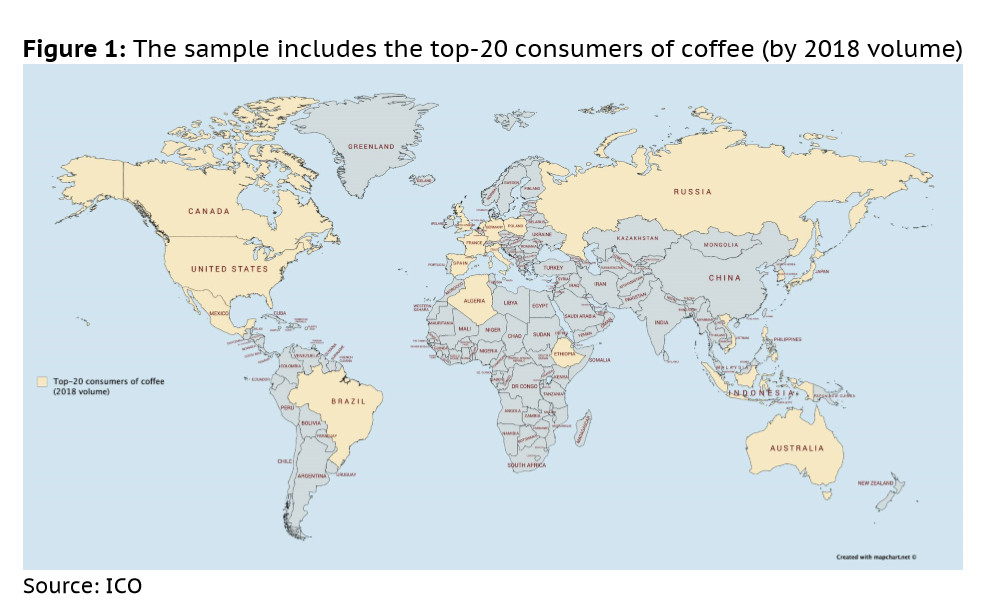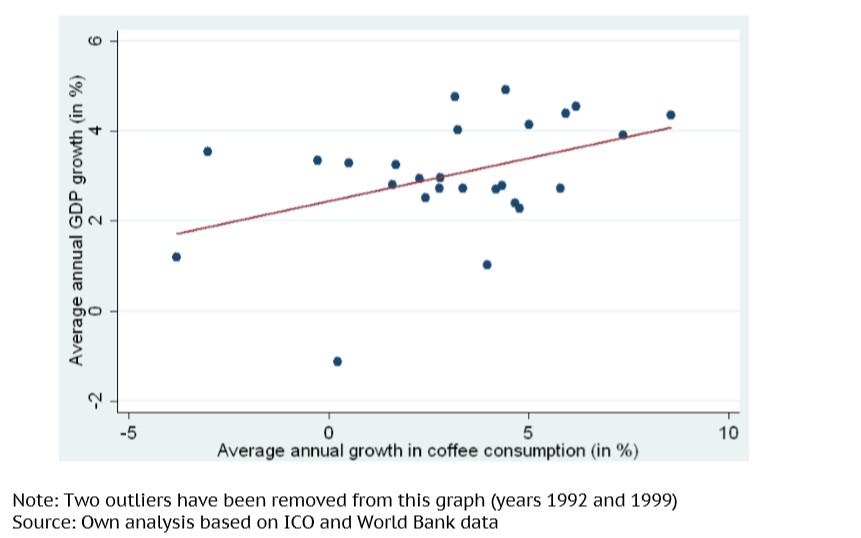
According to a recent International Coffee Organization (ICO) report, in the short-term out-of-home coffee consumption is decreasing significantly. In fact, a growing number of countries are adopting a full or partial lockdown due to Covid-19 pandemic. Offices, coffee shops and restaurants remain closed in order to reduce the spread of coronavirus.
On the other hand, retail and supermarket-level data suggest that panic buying and stockpiling has led to increased consumer demand in some countries. However, this is unlikely to have a sustained effect on consumption. Following an initial spike in demand, there will be proportionally less demand in the coming weeks and months as consumers draw down stocks kept at home.
Click here to discover the authentic Italian Coffee products on Italianfood.net platform
GLOBAL COFFEE DEMAND
A more profound effect on global coffee demand can be expected as the result of a global recession triggered by the direct and indirect effects of the Covid-19 pandemic. Reduced household incomes could translate into lower demand for coffee in volume terms. In addition, price-sensitive consumers may substitute higher-value coffee by lower-value blends or brands. However, according to ICO the income elasticity of coffee demand is likely to be low, especially in high-income countries and traditional markets with high per-capita consumption rates.
ICO performed a quantitative analysis in order to identify the relationship between GDP growth and coffee consumption (in volume terms), thereby providing an estimate of the demand-side shock resulting from the Covid-19 pandemic. The analysis is based on a sample of the top 20 coffee consuming countries, which account for 71% of global demand.

The regression results imply that on average a one percent drop in GDP growth globally is associated with 0.95 percent lower growth in coffee consumption, in relative terms.7 This is a reduction of growth in global demand for coffee by 1.6 million 60-kg bags in absolute terms.
The results suggest that even a modest decline in GDP growth as a result of the Covid-19 pandemic could have a significant impact on global coffee demand. The model predicts that a larger drop in GDP growth or a global recession would have a proportionally greater effect. As a result, coffee consumption levels could stagnate (or even decline) compared to pre-crisis years that were characterized by steadily increasing demand for coffee (at a rate of 2 to 3% per annum).

THE IMPACT OF SOCIAL REMOVAL MEASURES
Further effects on the demand side relate to the impact of distancing measures on out-of-home consumption, as a large part of the hospitality sector is blocked and workplaces are closed. However, this is only a transitional effect limited to the lockdown period which is expected to disappear in the medium to long term.
According to ICO further analysis, the supply-side effect of the pandemic is needed to understand the overall impact on the global coffee sector and all actors along the global value chain.
THE ROLE OF ITALY AT A GLOBAL LEVEL
In 2019 Italy exported coffee to over 200 countries but its reference market remains the EU. Despite the popularity of its coffee, Italy comes in fifth position among the top six importing countries, behind two other EU countries: Germany (31.4%) and Greece (61.2%). Geographical proximity seems to be the discriminating feature of trade in this product. This explains the leadership of Switzerland in France and in the UK.
The European coffee market is mature but constantly evolving. In recent years, consumption and sales have been driven by sustainability, which has become an important requirement for the image of many companies, and chain certification, which is considered as synonymous with transparency and commitment to stakeholders.
ITALIAN COFFEE EXPORTS BY DESTINATION – 2019, in value
| Germany | 14% |
| France | 9.8% |
| Greece | 5.3% |
| Other EU Countries | 36.1% |
| Non-EU countries | 28.6% |
| USA | 6.4% |

